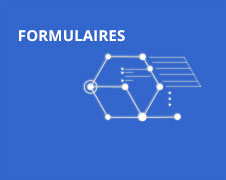Nathalie Grandvaux
Mécanismes de défense antiviraux: immunité innée et inflammation
- Professeure titulaire
-
Faculté de médecine - Département de biochimie et médecine moléculaire
- Professeure accréditée
-
Faculté de médecine - Département de microbiologie, infectiologie et immunologie
Media
Portrait de la chercheure : Dre Nathalie Grandvaux
© Université de Montréal
Profile
Research expertise
Nathalie Grandvaux’s laboratory is interested in the characterization of signaling mechanisms that are placed under redox control and ultimately lead to cellulargene regulation. Reactive oxygen species have recently been shown to directly modulate key signaling molecule’s activities through post-translational modifications. These mechanisms are studied in the context of the innate immune response to RNA virus infections, particularly Respiratory Syncytial Virus (RSV). We are focusing our endeavor on the IRF- and NF-kappaB-dependent regulation of cytokine genes expression that participates to virus restriction. More recently, we started to evaluate the role of these redox-dependent mechanisms to breast cancer-associated oncogenesis. Techniques of biochemistry, cellular biology, genomics and proteomics are used in these studies.
Biography
Après avoir obtenu un diplôme d'ingénieur et une maîtrise en Biochimie de l'Institut National des Sciences Appliquées de Lyon, Nathalie Grandvaux termine, en 1999, des études doctorales à l'Université de Grenoble, pendant lesquelles elle travaille sur la fonction d’un complexe enzymatique impliqué dans l'élimination des bactéries qui attaquent l'organisme. Ces travaux lui donnent l'occasion d'approcher, d'un point de vue fondamental, la biologie moléculaire et structurale des mécanismes de la réponse immunitaire innée.
Recherches fondamentales
Durant ses études postdoctorales entamées en 2000, Dre Grandvaux poursuit ses recherches sur la réponse innée de l'organisme, mais cette fois dans le contexte antiviral. Ces travaux, toujours de nature fondamentale, présentent néanmoins des applications cliniques puisqu'elles participent à l'avancée des connaissances, et ultimement à l'identification de nouvelles cibles thérapeutiques pour des infections virales, ainsi que certains cancers tels que les leucémies induites par le virus HTLV-1.
Recrutée par l'Université de Montréal, au département de biochimie, ainsi qu'au CRCHUM, Dre Grandvaux apprécie le rapprochement qu'elle opère vers la clinique, en côtoyant des confrères cliniciens qui bénéficieront des applications de ses travaux de recherche. Son équipe de recherche au CRCHUM poursuit l'étude des mécanismes de défense de l'hôte face aux infections virales, notamment les virus respiratoires. Des progrès majeurs réalisés par Dre Grandvaux et son groupe ainsi que de nombreux groupes internationaux ont permis de mieux comprendre cette réponse. Il reste cependant bien du chemin à parcourir avant l'obtention de traitements dans de multiples infections : « Il nous faut étudier à la fois plus largement et plus en détail les mécanismes d'action du système immunitaire inné. En effet, la réponse immunitaire innée, qui constitue la première ligne de défense de l’organisme, orchestre également l’ensemble de la réponse spécifique qui se met en place dans un deuxième temps. Il est donc essentiel d’en percer les secrets afin de mieux comprendre quelles sont les stratégies développées par des virus pour contourner la réponse antivirale et pouvoir agir au plus précoce de l'infection». Un aspect original des recherches de Dre Grandvaux consiste en l'étude du rôle des radicaux libres dans les mécanismes de défenses. Les recherches du groupe de Dre Grandvaux ont depuis les dix dernières années permis de démontrer qu'au niveau des muqueuses respiratoires, les dérivés de l'oxygènes (souvent considérés comme dommageable pour l'organisme) sont nécessaires pour que l'organismes puisse établir une défense appropriée. Les travaux du groupe de Dre Grandvaux se poursuive afin de déterminer comment ces mécanismes pourrant être utilisés dans des stratégies thérapeutiques.
De grands espoirs
Dre Grandvaux est une adepte du travail collaboratif et multidisciplinaire, tel qu'il se pratique d'ailleurs dans la recherche privée. Son arrivée au CRCHUM lui permet de continuer cette approche. « Il y a un intérêt évident à pouvoir collaborer avec des spécialistes de domaines différents du mien, afin d’aborder des aspects multiples de nos problématiques ». Depuis son arrivée, Dre Grandvaux a développé des interactions non seulement avec d’autres chercheurs de notre institution, mais également avec des chercheurs d’autres institutions au Canada, aux Etats-Unis en Belgique et en Australie. De ses études en France, Dre Grandvaux a également conservé de nombreux liens professionnels. Ces diverses expertises lui permettent d’aborder un aspect innovateur de l’étude des mécanismes moléculaires impliqués dans la réponse antivirale qui visent à identifier et à comprendre la fonction de nouveaux acteurs protéiques dans la réponse de l’organisme à l’invasion par un virus.
Awards and recognitions
- Chaire de Recherche du Canada Tier II en signalisation des infections virales et oncogénèse (2005-2015)
- Chaire de recherche de l'université de Montréal en signalisation des infections virales et oncogénèse (2015-2018)
- Paul Man Lectureship award, Faculty of Medicine, University of Alberta
- SFRBM Mentoring excellence award (2019)
education
- 2004 — Post-doctorat — Biologie cellulaire, Virologie — McGill University
- 1996 — Maîtrise (Equivalent) — Biochimie — Institut National des Sciences appliquées de Lyon
- 1996 — Diplôme d'Ingénieur — Biochimie — Institut National des Sciences Appliquées de Lyon
- 1999 — Ph. D. — Biologie cellulaire, Biologie moléculaire — Université Joseph Fourier
Affiliations and responsabilities
Research affiliations
Research units
Membre
- CRCHUM — Centre de recherche du Centre hospitalier de l’Université de Montréal
- GRUM — Groupe de recherche universitaire sur le médicament
Affiliated institutions
- Centre hospitalier de l’Université de Montréal (CHUM)
Teaching and supervision
Teaching
Courses taught (current session only)
Programs
Student supervision
Theses and dissertation supervision (Papyrus Institutional Repository)
Implication of protein redox modifications in the regulation of cellular antiviral signaling pathways
Cycle : Doctoral
Grade : Ph. D.
Évaluation des inducteurs de l’autophagie comme cible thérapeutique contre le virus respiratoire syncytial
Cycle : Master's
Grade : M. Sc.
Analyse du rôle des Cystéines dans l’activation de l’adaptateur MAVS lors de l’infection par le virus de Sendai
Cycle : Master's
Grade : M. Sc.
Étude du rôle de la phosphatase DUSP1 dans la régulation de la réponse immunitaire innée autonome dans les cellules épithéliales pulmonaires lors de l'infection par le virus respiratoire syncytial et le virus Sendai
Cycle : Master's
Grade : M. Sc.
Regulation and impact of adaptor protein SQSTM1/p62 in the replication cycle of Respiratory Syncytial Virus in Airway Epithelial Cells
Cycle : Master's
Grade : M. Sc.
Caractérisation de l’activité transcriptionnelle antivirale et immunorégulatrice dépendante de STAT2 et IRF9, mais indépendante de STAT1, induite par la costimulation par TNF
Cycle : Master's
Grade : M. Sc.
Role of NOX2 and DUOX2 in the antiviral airway responses
Graduate : Fink, Karin
Cycle : Doctoral
Grade : Ph. D.
L’étude de l’impact des protéines non structurales NS1 et NS2 du virus respiratoire syncitial sur la réponse immunitaire innée
Cycle : Master's
Grade : M. Sc.
Régulation des processus de réparation de l’épithélium bronchique sain et Fibrose Kystique par le TNF-alpha
Graduate : Maillé, Émilie
Cycle : Master's
Grade : M. Sc.
Étude de la régulation du facteur de transcription NF-kB dans l'infection par le RSV
Graduate : Martel, Alexis
Cycle : Master's
Grade : M. Sc.
Projects
Research projects
Redox regulation of the antiviral response : role of oxidative post-translational modifications of MAVS.
Synergism between IFNß and TNFa: noncanonical functions of STAT2 and IRF9 transcription factors
Autophagy in the control of RSV replication in human airway epithelial cells
Mucosal innate immunity in HIV resistant women
Scalable, Customizable, Digital Health Communication Materials to Help Canada Address the COVID19 Pandemic
Réseau québécois COVID - pandémie (RQCP)
Mise au point d'une alternative aux écouvillons naso-pharyngés grâce à l'impression 3D
Plateforme de criblage préclinique pour des composés antiviraux à large spectre
Laboratoire de confinement 3 pour l'étude et l'exploitation de la réponse immunitaire innée dans la lutte contre le SRAS-CoV-2
Supplément COVID-19 CRSNG_Synergism between IFNß and TNFa: noncanonical functions of STAT2 and IRF9 transcription factors
REDOX REGULATION OF THE INNATE ANTIVIRAL RESPONSE IN AIRWAY EPITHELIAL CELLS : REGULATION AND FUNCTION DUOX2
Operations and Maintenance Support for Canadensys: Pancanadian Biodiversity Informatics Network and Portal
DURATION OF THE ANTIVIRAL RESPONSE : PHOSPHO-DEPENDENT REGULATION MECHANISMS
Targeting mTOR to restore mucosal immunity toward remission in HIV-infected individuals.
MOLECULAR MECHANISMS UNDERLYING A DISTINCT SPECIFIC RESPONSE MEDIATED BY IFNBETA AND TNFALPHA COSTIMULATION
First workshop of the Canadian Society for Virology
The CRCHUm symposia on research priorities toward a cure in chronic viral infectious diseases: from pathogen sensing to eradication
REDOX REGULATION OF THE INNATE ANTIVIRAL RESPONSE IN AIRWAY EPITHELIAL CELLS : REGULATION AND FUNCTION OF DUOX2
CELL SIGNALING, VIRUS INFECTION AND CANCER
REDOX REGULATION OF THE PROINFLAMMATORY RESPONSE INDUCED BY RSV IN AEC
ONCOGENIC SIGNALING PATHWAYS IN BREAST CANCER:REGULATION AND FUNCTION OF THE IKKEPSILON KINASE
REDOX REGULATION OF THE PROINFLAMMATORY RESPONSE INDUCED BY RSV IN AEC
Outreach
Highlights
Mise en valeur d’une recherche
Immunité antivirale
Publications and presentations
Publications
59. N. Zamorano Cuervo, Quentin Osseman and N. Grandvaux* (2018)
Analysis of whole cell extracts distinguishes distinct polymerization states of MAVS during virus infection.
Viruses. 10(2): 56
58. S. Rengachari, S. Groiss, J. Devos, E. Caron, N. Grandvaux and D. Panne (2018)
The structure of IRF9 transactivation domain reveals molecular insights into ISGF3 assembly.
Preprint publication: BioRxiv http://dx.doi.org/10.1101/131714 - 28 Avril 2017
PNAS. pii: 201718426 IF2016: 9.66
57. A.C. Robitaille, E. Caron, N. Zucchini, E. Mukawera, D. Adam, M. Mariani, A. Gélinas, A. Fortin, e. Brochiero and N. Grandvaux* (2017)
DUSP1 regulates apoptosis and cell migration, but not the JIP1-protected cytokine response, during Respiratory Syncytial Virus and Sendai Virus infection.
Preprint publication: BioRxiv http://doi.org/10.1101/163360 - 14 juillet 2017
Sci. Rep.7(1):17388. IF2016: 4.84
56. D. Planas, Y. Zhang, P. Monteiro, J.P. Goulet, A. Gosselin, N. Grandvaux, A. Fassati, J.P. Routy, and P. Ancuta (2017)
HIV-1 selectively targets gut-homing CCR6+CD4+ T-cells via mTOR-dependent mechanisms.
JCI Insights. 2(15):e93230.
55. V. Williams, AA Grosset, N. Zamorano, Y. St Pierre, MP Sylvestre, L. Gaboury and N. Grandvaux* (2017)
Detection of IKK by immunohistochemistry in primary breast cancer: association with EGFR expression and absence of lymph node metastasis.
BMC Cancer. 22;17(1):356. IF2015: 3.26
54. C. McCormick* and N. Grandvaux* (2017)
1st Workshop of the Canadian Society for Virology
Viruses. 20;9(3). pii: E54. IF2016: 3.45
53. S. Cervantes-Ortiz, N. Zamorano Cuervo and N. Grandvaux* (2016)
Respiratory Syncytial Virus and Stress responses : impact on replication and physiopathology.
Viruses 8, 124. IF2016: 3.45
52. A. Robitaille, M. Mariani, A. Fortin and N. Grandvaux* (2016)
A high resolution method to monitor phosphorylation-dependent activation of IRF3
J. Vis Exp. 107, e53723, doi:10.3791/53723.
51. E. Mukawera, S. Chartier, V. Williams, P. Pagano, R. Lapointe and N. Grandvaux* (2015).
Redox-modulating agents target NOX2-dependent IKK oncogenic kinase expression and proliferation in human breast cancer cell lines.
Redox Biol. 6: 9-18 IF2015: 6.34
50. N. Grandvaux*, M. Mariani and K. Fink (2015).
Lung epithelial NOX/DUOX and respiratory virus infections
Clinical Sci. 128(6):337-47. IF2014: 5.59
49. L.A. Hanafia, D. Gauchat, J. Godin- Ethier, J.B. Duvignaud, D. Leclerc, N. Grandvaux and R. Lapointe (2014).
Fludarabine down- regulates indoleamine 2,3-dioxygenase in tumors via a proteasome-mediated degradation mechanism.
Plos One 9(6):e99211. IF2014: 3.23
48. N. Grandvaux*, X. Guan, F. Yoboua, N. Zucchini, K. Fink, P. Doyon, L. Martin, M. Servant and S. Chartier (2014).
Sustained activation of IRF-3 during infection by paramyxoviruses requires MDA5.
J. Innate Immun. 6:650-662 IF2014: 4.35
47. K. Fink and N. Grandvaux* (2013).
STAT2 and IRF9 : beyond ISGF3
JAK-STAT 2(4):e27521
46. N. Marr, S. E. Turvey and N. Grandvaux* (2013).
Pathogen recognition receptor crosstalk in respiratory syncytial virus sensing: a host and cell type perspective.
Trends Microbiol. 21(11):568-74 IF2013: 9.8
45. M. Baril, S. Es-Saad, L. Chatel-Chaix, M.A. Germain, K. Fink, K. Audette, A.S. Guenier1, J. Duchaine, M. Servant, N. Grandvaux and D. Lamarre (2013).
Genome wide RNAi screen reveals novel roles of spliceosomal proteins and of WNT/CTNNB1 signaling pathway in regulation of innate antiviral responses.
Plos Pathogens 9(6), e1003416 Epub juin 2013 IF2013: 8.05
44. K. Fink, L. Martin, E. Mukawera, S. Chartier, X. De Deken, E. Brochiero, F. Miot and N. Grandvaux* (2013).
IFNβ/TNFα synergism induces a non-canonical STAT2/IRF9-dependent pathway triggering a novel DUOX2 NADPH Oxidase-mediated airway antiviral response.
Cell Res. 23(5):673-690, 2013 IF2013 : 11.98
43. F. Chouinard, C. Turcotte, X. Guan, M.C. Larose, S. Poirier, L. Bouchard, V. Provost, L. Flamand, N. Grandvaux, N. Flamand. (2013)
2 2-Arachidonoyl-glycerol- and arachidonic acid-stimulated neutrophils release antimicrobial effectors against E. coli, S. aureus, HSV-1, and RSV.
J. Leuk. Biol., 93(2) :267-276. IF2013 : 4.3
42. N. Zucchini, V. Williams and N. Grandvaux* (2012)
IRF-3 thiol residues are not critical for its activation following virus infection
JICR. 32(9) IF2012 : 3.29
41. L. Jouan, L. Chatel-Chaix, P. Melançon, I.G. Rodrigue-Gervais, V.A. Raymond, S. Selliah, M. Bilodeau, N. Grandvaux and D. Lamarre (2012).
Targeted impairment of innate antiviral responses in liver of chronic Hepatitis C patients.
J. Hepatology. 56(1):70-7. IF2012: 9.85
40. E. Maillé, N.T. Trinh, A. Privé, C. Bilodeau, E. Bissonnette, N. Grandvaux and E. Brochiero (2011).
Regulation by TNFα of normal and cystic fibrosis bronchial epithelial repair processes after injury
Am J Physiol Lung Cell Mol Physiol. 301(6):L945-55. IF2011 : 3.66
L. Chami-Giovannini, N. Grandvaux, B. Marcet, L.E Zaragosi, K. Robbe-Sermesant, B. Cardinaud, C. Coraux, Y. Berthiaume, R. Waldmann, B. Mari and P. Barbry (2011).
Impact of microRNA in normal and pathological respiratory epithelia. In M.D. Amaral, K. and Kunzelmann (Ed),
Methods in Molecular Biology Vol. 741, Cystic Fibrosis Protocols and Diagnosis, 1st edition Springer, Humana Press, pages 171-91.
38. F. Dufour, L. Bertrand, A. Pearson, N. Grandvaux and Y Langelier (2011).
The ribonucleotide reductase R1 subunits of herpes simplex type 1 and 2 protect cells against poly(I:C)-induced apoptosis
J. Virol. 85:8689-701. IF2011: 5.40
37. P. Monteiro, A. Gosselin, V. S. Wacleche, M. El-Far, N. Grandvaux, M. R. Boulassel, J.P. Routy and P. Ancuta (2011)
Memory CCR6+CD4+ T-Cells are Preferential Targets for Productive HIV-1 Infection Regardless of their Expression of Integrin Beta7
J. Immunol. 186(8):4618-30. IF2011: 5.79
36. N. Grandvaux* (2011)
The IKKε kinase in breast cancer : from oncogenesis to treatment resistance.
Med. Sci. 27(6-7):619-625. IF: 0.63
35. F. Yoboua$, A. Martel$, A. Duval, E. Mukawera and N. Grandvaux * (2010).
Respiratory-Syncytial Virus-mediated NF-kappaB p65 phosphorylation at Serine 536 is dependent on RIG-I, TRAF6 and IKKbeta.
J. Virol. 84(11):7267-77. IF2010: 5.18
34. A. Soucy-Faulkner, E. Mukawera, K. Fink, A. Martel, L. Jouan, Y. Nzengue, D. Lamarre, C. Vande Velde and N. Grandvaux* (2010).
Requirement of NOX2 and Reactive Oxygen Species for efficient RIG-I-mediated antiviral response through regulation of MAVS expression.
PloS Pathogens 6(6):e1000930. IF2010: 9.7
33. Jouan L., Melançon P., Rodrigue-Gervais I.G., Raymond V., Selliah S., Bilodeau M., Grandvaux N. and Lamarre D (2010).
Distinct Antiviral Signaling Pathways in Primary Human Hepatocytes and their Differential Disruption by HCV NS3 Protease.
J. Hepatol. 52(2):167-75. IF2010: 9.33
32. K. Fink, A. Duval, A. Martel, A.Soucy-Faulkner, and N. Grandvaux * (2008).
Dual role of NOX2 in the regulation of NF-B activation during Respiratory Syncytial Virus and Sendai Virus infection of Airway Epithelial Cells.
J. Immunol. 180:6911-6922.
Disciplines
- Virology
- Immunology
- Cell Biology
Areas of expertise
- Antivirals
- Respiratory System
- Cell
- Gene (Living Organisms)
- Macromolecules
- Infectious Diseases
- Microorganisms
- Immune Reactions
- Virus (Living Organisms)
- COVID-19
- COVID19
Aide en ligne pour votre profil | Nous joindre
Le Répertoire des professeurs est propulsé par les données du ![]() SADVR et est un projet du CENR.
SADVR et est un projet du CENR.


